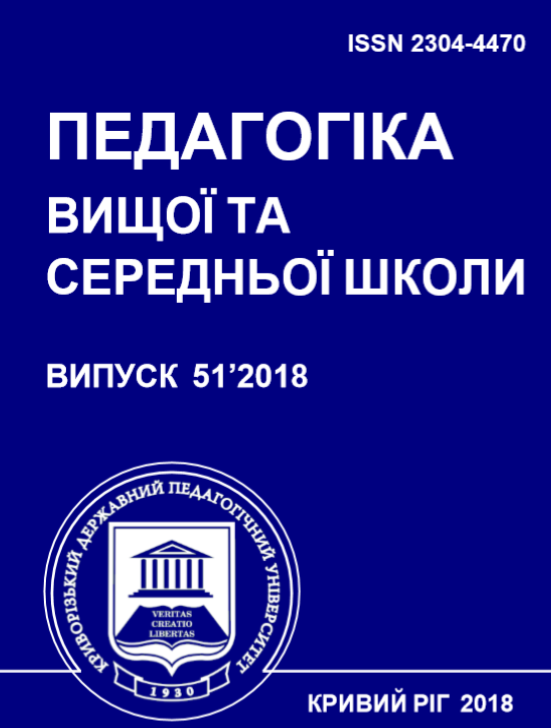Conceptual Bases of Use of Free Software in the Professional Training of Pre-Service Teacher of Mathematics, Physics and Computer Science
DOI:
https://doi.org/10.31812/pedag.v51i0.3662Keywords:
free software, teacher training, the concept of implementationAbstract
Velichko V.Ye., Fedorenko O.G. and Kasím D.A. Conceptual Bases of Use of Free Software in the Professional Training of Pre-Service Teacher of Mathematics, Physics and Computer Science.
The development of education is associated primarily with the use of ICT. A significant experience is already gained in how to use educational computer systems while new forms and methods of learning based on modern information technology are being developed and used. In relation to free software, a period when the quantity should translate into quality and an indicator of such translation is development of the concept of the introduction of free software in educational activities of universities. The proposed concept, let’s take Ukraine as an example, determines the main aim of introduction of free software in the training of pre-service of Mathematics, Physics and Computer Science; defines the objectives, measures, principles, the role and value of free software in the informatization process and results of its implementation.
Downloads
References
Bykov, V. Yu.: Suchasni zavdannia informatyzatsii osvity (Modern tasks of informatization of education). Information technology and learning tools. 15 (1) (2010). DOI: https://doi.org/10.33407/itlt.v15i1.25
Morze, N. V.: Osnovy metodychnoi pidhotovky vchytelia informatyky (Basics of methodical training of informatics’ teachers). Kurs, Kyiv (2003).
Semerikov, S. O., Teplytskyi, I. O.: Vilne prohramne zabezpechennia yak faktor stabilizatsii vuzivskykh kursiv informatyky (Free Software as a factor in the stabilization of university computer science courses). In: Proceedings of Ukrainian scientific and practical conference on Information technologies in education, MSPU, Melitopol, 24–26 May 2006, pp. 55–56 (2006).
Semerikov, S. O., Teplytskyi, I. O.: Z dosvidu vykorystannia Vilnoho prohramnoho zabezpechennia u pidhotovtsi maibutnoho vchytelia (The experience of the use of Free Software in preparing future teachers).
Ridna shkola. 5, 40–41 (2003). DOI: https://doi.org/10.1002/wilm.42820030613
Semerikov, S. O.: Fundamentalizatsiia navchannia informatychnykh dystsyplin u vyshchii shkoli (Fundamentalization of Computer Science teaching at the high educational institutions). Mineral, Kryvyi Rih
(2009).
Tryus, Yu. V.: Kompiuterno-oriientovani metodychni systemy navchannia matematychnykh dystsyplin u VNZ: problemy, stan i perspektyvy (Computer-oriented methodical systems of teaching mathematical disciplines in higher educational institutions: problems, state and prospects). Naukovyi chasopys NPU imeni M. P. Drahomanova, Seriia 2: Kompiuterno-oriientovani systemy navchannia. 9, 16–29 (2010).
Verkhovna Rada Ukrainy: Zakon Ukrayiny Pro Natsionalnu prohramu informatyzatsii (Law of Ukraine: On the National Informatization Program). Zakonodavstvo Ukrainy. http://zakon3.rada.gov.ua/laws/show/74/98-%D0%B2%D1%80 (1998). Accessed 25 Dec 2017.
Zhaldak, M. I.: Pedahohichnyi potentsial kompiuterno-oriientovanykh system navchannia matematyky (Pedagogical potential of computer-oriented systems of teaching mathematics). Kompiuterno-oriientovani systemy navchannia. 7, 3–16 (2003).
Downloads
Published
Issue
Section
License
Copyright (c) 2018 Владислав Величко, Олена Федоренко, Дар'я Кассім

This work is licensed under a Creative Commons Attribution 4.0 International License.




